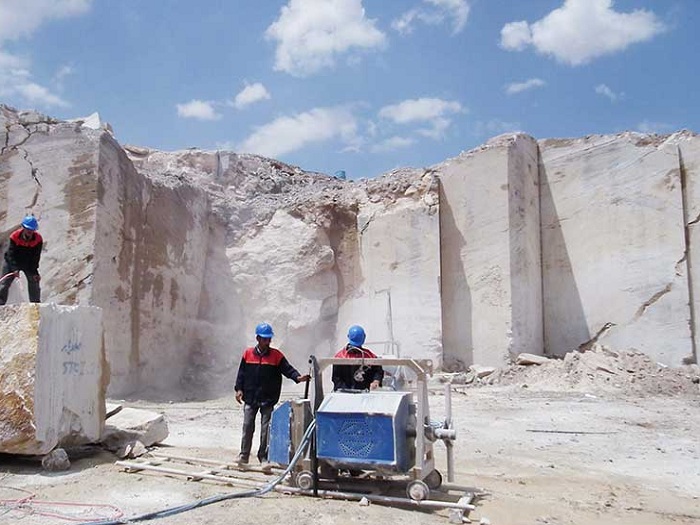Fifty mine licenses in the name of state-owned companies

The Majlis Research Center in a report analyzed and analyzed the government tenure in Iran's mines.
According to Iran's International Stone Exhibition, the Center for Energy, Industry and Mine Studies on Saturday issued a report titled "Investigating and Analyzing Government Mining in Iran": Iran's abundant mineral and metallic resources have led to Provision of laws and regulations provides the platform for the participation of applicants for mining activities, legal mechanisms, technical, administrative and financial institutions and structures.
The report added: Delegation or mining in each of the mining chain's rings is done in a variety of legal ways and the government can issue them in such ways as registering free zones, appealing and bidding (transferring licenses or contracting extraction and sales). Applicants to outsource mining activities.
The license is about fifty mines in the name of development agencies and government companies
Of the more than 10,000 mines in the country, about 50 are mines (generally the largest mines in the country), according to the Center for Development Research and state-owned companies. The license to exploit other large and medium-sized mines is called the private sector, and in particular quasi-state companies such as the National Iranian Copper Industries Corporation.
The exact number of mines with exploration licenses or certificates of discovery in the name of government agencies and corporations is unknown, the report said. However, there are some uncertainties and challenges in the process of outsourcing of minefields and mines with a variety of legal licenses (such as exploration licenses, exploration certificates and licenses).
The policies of the Ministry of Industry, Mines and Commerce in providing the private sector with exploration activities have not been very successful in attracting the private sector and empowering private companies in the field, according to studies by the Majlis Research Center.
Firstly, the examination of the historical process of defining exploration zones and zones indicates a failure of coordination in exploration sector policy; secondly, the fact is that mainly development organizations, government and non-state corporations are likely to participate in the activities arising from the definition. They have discovered exploration zones so that these organizations can eventually obtain exploration licenses or licenses in the name of the same organization or government company by doing additional exploration activities.
The report of the Majlis Research Center pointed out that the government's policy regarding the existing large mines, whose licenses are in the name of government agencies and corporations, is defensible, in that the government is contracted to extract and sell under Article Thirty-Five , Assigns mining operations to the private sector. Large mines such as Chadarmulo, Sangan, Mehdiabad, Golgohar, Parvadeh Tabas Coal, etc., have been outsourced to the private sector through contractual extraction and sale.
The report added: Despite the government's well-accepted policy on large-scale mining, the government's policies in defining exploration zones and conducting exploration operations are ambiguous and will have no effect other than the private sector's growth in the first chain of mining activities.
The report of the Majlis Research Center stated: Lack of attention to the mission and mission of the following agencies of the Ministry of Commerce in the formulation of exploration programs is a major challenge in this field. This has led to the discovery of mining exploration monopolies for some government and non-governmental organizations and companies.
The report added: "Sustainable growth and development of the country's mining sector will not be possible except by strengthening the private sector and attracting investment, especially in the first rings of the mining chain, but this requires the government to play a key role in the early stages of mineral exploration with a regulatory role strengthening approach." The Ministry of Health is the Deputy Minister of Health between the relevant organizations and institutions in this field.
* IRNA










